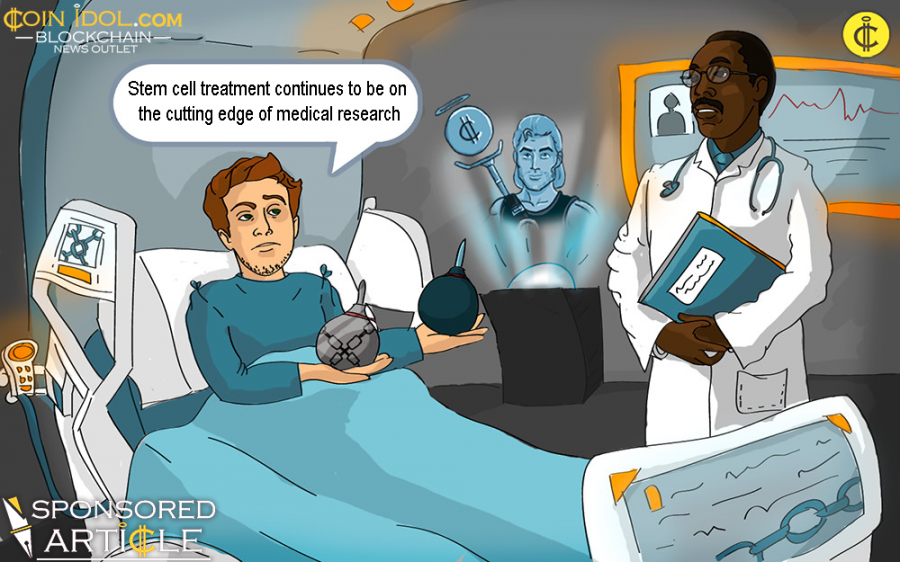Stem Cells - the Future of Human Health is in Our Own Hands Now

Stem cell treatment and technology continues to be on the cutting edge of medical research and discovery, and will most likely become an even more important part of the medical community. Stem cells have the ability to regenerate, repair, and replenish other cells, which provides hope for the possibility of replacing diseased cells.
Hospitals and organizations in the United States and around the world are conducting stem cell research to further the field. To date, the majority of case studies reveal positive findings. Breakthroughs in stem cell research span across the spectrum of healthcare provision.
Currently, stem cell therapies that are on the market or under development around the world include Immune System Therapies, CHO cell and hybridomas, neural stem cell therapies, pluripotent stem cell therapies, hematopoietic stem cells, mesenchymal stem cells, mammary epithelial cell therapies, prostate epithelial cell therapies, pulmonary stem cell research, and intestinal stem cell research.
The most successful and established stem cell therapies have been conducted with bone marrow transplants, which were first performed over 40 years ago thanks to researchers at Johns Hopkins University and their contributions. Since then, further developments in bone marrow transplants have been made and are well documented in Half-Matched Transplants and Human Stem Cells at Johns Hopkins: A Forty Year History.
Prior to advancements in stem cell research, doctors collected bone marrow for transplants from a patient’s own bone marrow, but with the successes in stem cell research, medical professionals can now harvest stem cells from blood for the purposes of bone marrow transplants. The impacts of stem cells on bone marrow transplants means that patients do not have to wait for a donor and painful surgical procedures can be avoided. Stem cells can provide us with a unique approach to therapy in a variety of conditions. Such research and advancement may continue to change the way the medical community views many of the world’s most prevalent diseases.
Stem cell technologies represent the next generation in health care, yet around the world, only a few health care providers are actually involved in stem cell treatments.
Stem Cell Innovations, a company focusing on research and development to further longevity in life, aims to make stem cells available to the masses through blockchain technology.
“Our goal is to include as many people as possible from the medical industry in stem cells research and use. We envision a world where people have access to the treatments and therapies they need,” SCI said in its white paper released in the run-up to the recent launch of their ICO token pre-sale which is running till October 29.
To achieve this vision, SCI is developing a network of experts to educate and inform about the possibilities of stem cell technologies. The network incorporates secure, convenient, state-of-the-art services for SCI clients’ stem cell needs.
SCI has developed a unique formula that will allow users to purchase a unique, custom-made, synthetic stem cell treatment for their medical needs. With the patient’s consent and minimal information such as date of birth, blood type, allergies, diagnostics, and several health-related questions, SCI will run internal, secure lab sequences that are plugged into a proprietary algorithm that was developed. The algorithm results in the ability to structure a custom-designed, synthetic stem cell for an individual in need of specific treatment. This groundbreaking technology and worldwide accessibility from SCI will lead the world to outstanding innovations.
SCI, together with its vast network of professionals and world-class team, aims to solve several problems tormenting the stem cell industry today: Lack of access to quality treatment options for patients with a variety of medical conditions; Lack of communication between professionals and medical experts who could treat patients with stem cell therapies; Limited access to, and sharing of, information related to stem cell research; Difficult international collaboration and payment of therapies related to stem cell treatments; Limited number of stem cell banks around the world make storing and accessing stem cells difficult; Lack of access to synthetic stem cells for therapeutic purposes; A misunderstanding about stem cell research and the possibilities it provides.
“Our ultimate goal is to connect people who need treatment with a dedicated team of professionals who can provide personalized solutions based on patient factors and demographics collected in our blockchain-supported platform,” SCI said.
Such a network connecting people who need stem cell treatment with highly motivated medical professionals – but also dedicated investors and innovative engineers – will be possible through SCIapplication, a unique platform that will result in people who require stem cell transplants or treatments having access to cells that are available and are a match for their needs.
While advancements have been made in stem cell research previously, the introduction of the blockchain-supported application means that more people can gain access to these potentially life-changing treatments – effectively changing the face of the medical community forever.
The SCI token sale campaign is currently in pre-sale stage until October 29. The main ICO, powered by the ICODashboard platform, is scheduled to begin on November 21 to January 17, 2019. For more information, please visit www.scia.io
Disclaimer. This article is paid and provided by a third-party source and should not be viewed as an endorsement by CoinIdol. Readers should do their own research before investing funds in any company. CoinIdol shall not be responsible or liable, directly or indirectly, for any damage or loss caused or alleged to be caused by or in connection with the use of or reliance on any such content, goods or services mentioned in this article.
Price
Price
Price
Price
News

(0 comments)